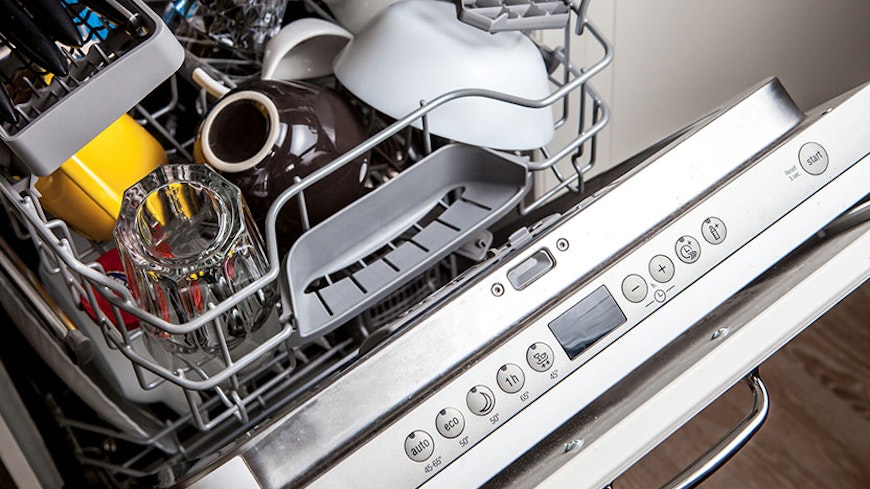
By Erin Bennett
Test Data Lead | Hautū Raraunga Whakamātautau
Most dishwashers have an economical (eco) mode that saves water and energy, but it could mean you’re left with wet dishes.
How eco mode works
The different wash cycles on your dishwasher are just different combinations of heat, water and time. The hotter the dishwasher cycle is, the better the washing and drying performance, but this can translate to higher energy consumption. Eco mode uses less energy and water, but there are drawbacks.

To maximise energy savings, check your electricity plan to see if there’s a low-tariff or off-peak time during which to run your dishwasher.
Benefits
Saves energy by reducing temperature.
Conserves water used.
Downsides
Longer wash time.
Lower temperature means dishes can take longer to dry.
Eco mode might mean you get a less intense clean – but unless you’re washing grease-covered pots and pans, you’re unlikely to be left with dirty dishes.
How to get the most out of eco mode
Have patience ‒ washing dishes on eco mode will take longer.
To maximise energy savings, check your electricity plan to see if there’s a low-tariff or off-peak time during which to run your dishwasher.
Scrape food off heavily soiled dishes, pots and pans, but there’s no need to rinse them – the detergent and dishwasher will do the hard work for you.
Help dishes dry faster by:
using rinse-aid
opening the door once finished to let steam out
removing plastics and letting them dry on the bench (plastics cool quicker than dishes and pots, meaning moisture on their surface is slower to evaporate)
choosing a model with internal fans (check these run in eco mode) or automatic opening doors.
Eco vs auto-sensing
An alternative to using eco mode that most dishwashers have is the auto-sensing cycle. The level of dirtiness is measured by analysing how dirty the water is. The dishwasher then adjusts cycle time, water used and temperature.
Looking for the best dishwasher?See our buying guide for how to choose the right model, or check out our test results to find out which models we recommend.

We can't do this without you.
Consumer NZ is independent and not-for-profit. To help us get a fairer deal for all New Zealand consumers, you can make a donation. We’ll use your contribution to investigate consumer issues and work for positive change.
Stay in the know
Keep up-to-date with Consumer's latest news, investigations and product and service reviews, plus join the Consumer panel with invitations to take part in surveys.